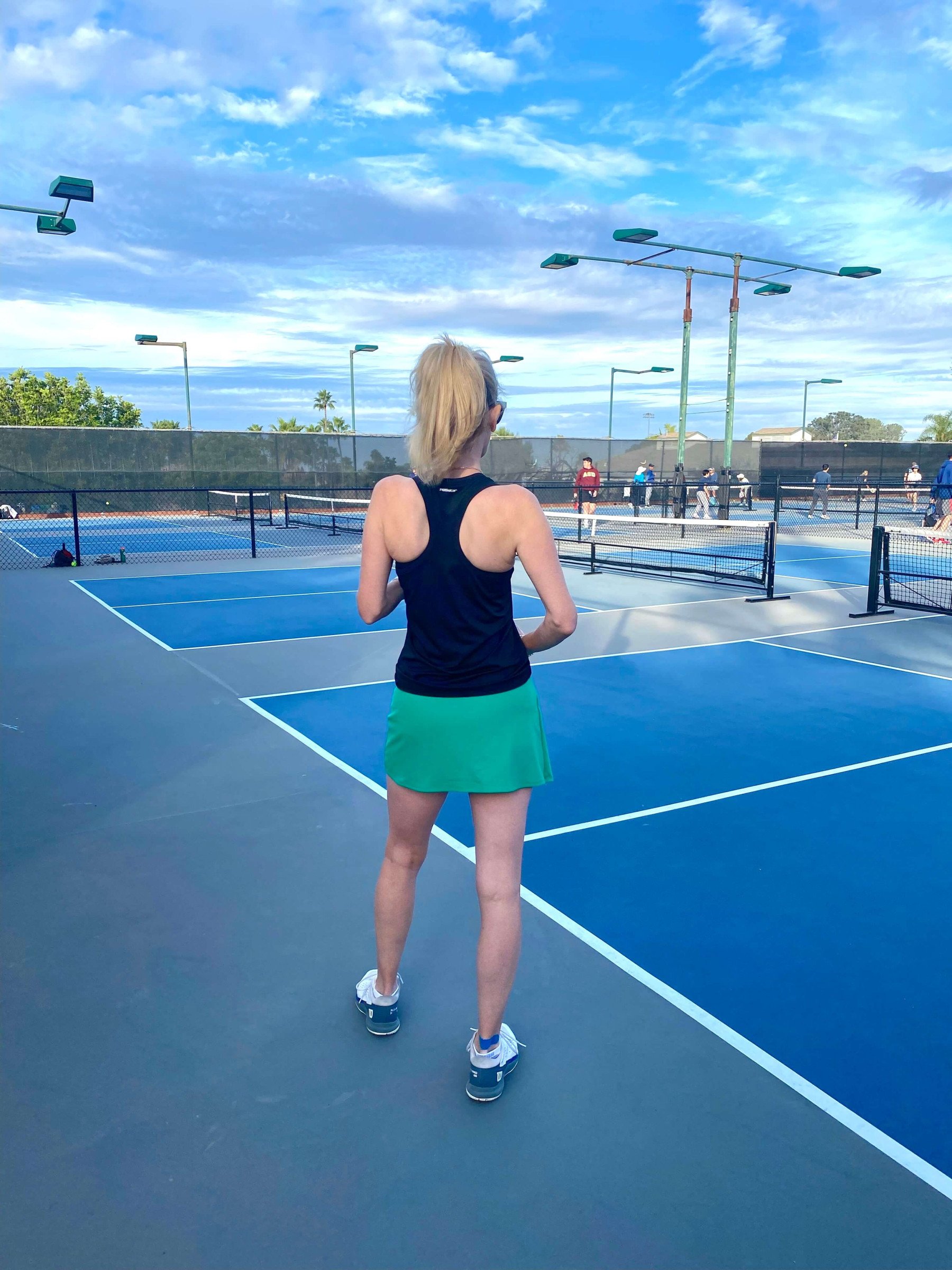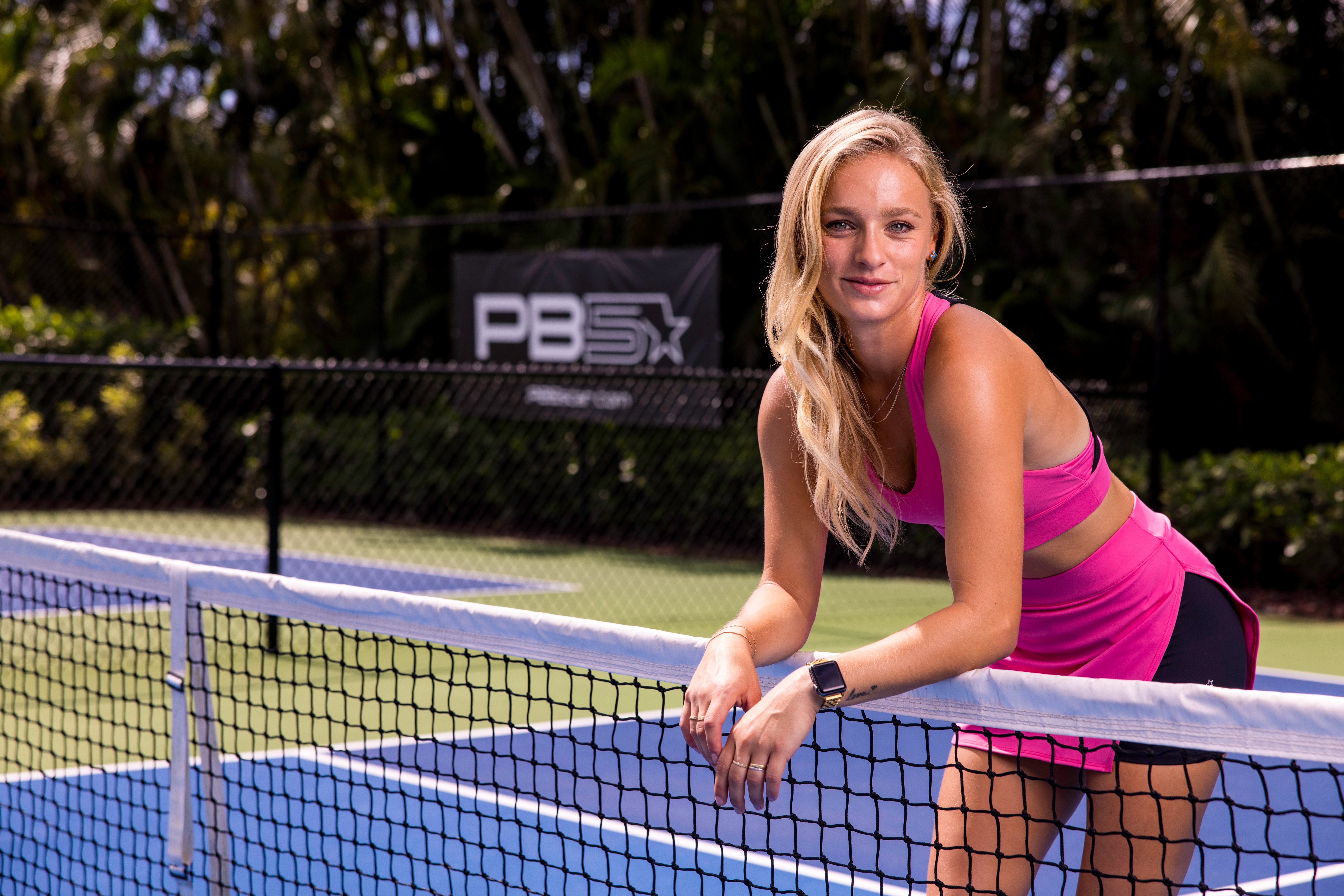Pickleball is the new buzz in town, blending tennis, badminton, and ping-pong into one super fun game! It’s winning hearts and becoming a neighborhood favorite, making it perfect for local events. This guide is your playbook for throwing an epic pickleball event, from chill hangouts to lively pickleball fundraisers and action-packed tournaments.
At its heart, pickleball is more than just a game; it’s about bringing people together and having a blast. Whether you’re planning a small gathering with friends or a grand community event, the basics of organizing a successful pickleball event stay the same. This guide will help you make your pickleball a hit, and ensuring that everyone has a fantastic time, both on and off the court.
Option 1: Plan a Pickleball Party
Throwing a pickleball party is all about mixing smart planning with a dash of creativity. First up, pick the perfect venue based on your guest list and the vibe you’re going for. Public parks with pickleball courts are awesome for big groups, while private courts or community centers are cozy for smaller get-togethers. Pickleheads.com is a tool that can also help you find local pickleball courts.
Next, let’s talk gear. You’ll need paddles, balls, and maybe portable nets if your venue doesn’t have them. Make sure you’ve got enough equipment for everyone, from newbies to seasoned players. Think about including a variety of paddles – lighter ones for beginners and top-notch ones for the pros. The goal is to make sure everyone has a great time.
But a pickleball party is more than just the game. Spice it up with a fun theme and activities. How about a ‘Retro Racquet’ party where everyone dresses up in vintage sportswear? Add mini-games like target-hitting contests or a mini round-robin tournament to break the ice and add some friendly competition.
Don’t forget the food and drinks! Depending on your budget, you can go simple with snacks and refreshments or organize a potluck. Make sure to cater to different dietary preferences and set up hydration stations, especially if it’s a hot day.
Planning checklist:
- Choose the right venue (public parks for large groups, private courts for small gatherings).
- Gather necessary equipment (paddles, balls, nets).
- Incorporate themes and mini-games.
- Organize food and beverage options (snacks, potluck, hydration stations).
Option 2: Organize a Pickleball Fundraiser
Planning a pickleball fundraiser? Time to get strategic and community-focused. Start by setting clear goals. Who are you raising funds for? Is it a local charity, a community project, or to promote pickleball in your area? Having a clear mission will guide your planning and help you communicate your cause to potential participants and sponsors.
Marketing your pickleball tournament is key. Use local networks like pickleball clubs, community centers, and social media to spread the word. A catchy flyer or online post can generate buzz quickly. Engage with your community on social media to increase visibility and excitement.
Think outside the box for your event. Besides the usual pickleball matches, add elements that can boost your fundraising efforts. Charge entry fees, sell refreshments, or organize a raffle with prizes from local businesses. Partnering with local businesses for sponsorships or donations can help cover costs and build stronger community ties.
Unique fundraising ideas can make your event stand out. Host skill clinics with local pickleball pros where participants donate to join, or organize a ‘Pickleball-A-Thon’ where players get sponsored per game. These activities not only raise funds but also add a fun twist to your event.
Remember, the best fundraisers bring people together for a great cause. Make sure your event is enjoyable, well-organized, and clearly aligned with your fundraising goals to create a memorable experience for everyone involved.
Pickleball fundraiser checklist:
- Set clear fundraising goals.
- Market the event through local networks and social media.
- Incorporate additional fundraising elements (entry fees, raffles).
- Partner with local businesses for sponsorships.
- Consider unique fundraising ideas (skill clinics, Pickleball-A-Thon).
Option 3: Create a Fun-Filled Pickleball Tournament
A pickleball tournament offers a fantastic opportunity to bring the community together, showcase skills, and foster sportsmanship. The first consideration in organizing such an event is the tournament structure. Whether it's a single-elimination, round-robin, or a more casual 'play as you go' format, the choice should align with the event's overall tone and participant skill levels. A mixed format that accommodates both competitive and recreational players often works well to keep the event inclusive and engaging.
Scheduling plays a significant role in the smooth running of the tournament. Allocate enough time for each match, considering potential delays and breaks. This ensures that the event stays on track without rushing the participants. Also, scheduling flexibility should be considered for those who might be juggling other commitments.
Adding fun elements can transform a standard tournament into an extraordinary experience. Themed rounds, like a 'Crazy Hat' match where players wear humorous hats, can add a light-hearted touch. Friendly competitions, such as 'Best Team Spirit' or 'Most Creative Team Name,' encourage participation beyond just the game. These elements help in creating a relaxed, enjoyable atmosphere.
Participant awards can also be a great addition. Apart from the usual trophies for winners, consider awards for sportsmanship, the most improved player, or even the most enthusiastic supporter. These recognitions foster a sense of accomplishment and appreciation, enhancing the overall experience for everyone involved.
Tournament checklist:
- Choose a suitable tournament structure (single-elimination, round-robin, mixed format).
- Plan and allocate time for each match, including potential delays.
- Add themed rounds and friendly competitions.
- Prepare participant awards (trophies, sportsmanship awards).
Prep for your your next tournament or match with PB5star, high-quality performance apparel, footwear, and paddles designed to help players of all levels reach their full potential.
Marketing and Promotion of Your Pickleball Event
Effective marketing and promotion are vital to attracting a good turnout for your pickleball event. Start with a clear message about what your event offers and why it's worth attending. This message should resonate with your target audience, whether they are seasoned players, families looking for a fun day out, or individuals interested in supporting a good cause.
Once you have your message, it’s time to look for ways to share it! Here are three ideas:
- Social media is a powerful tool. Use platforms like Facebook, Instagram, and Twitter to create event pages, share updates, and engage with your community. Regular posts with eye-catching images or videos of pickleball action, event preparations, and participant testimonials can generate excitement and anticipation.
- Local partnerships can amplify your reach. Collaborate with local businesses, schools, and sports clubs to promote your event. These entities can help spread the word through their networks and might also provide sponsorships or resources. In return, their involvement in a community event enhances their local presence and reputation.
- Don’t overlook community outreach. Flyers in local cafes, community centers, and sports complexes, along with announcements in community newsletters or local radio stations, can be effective. Personal invitations and word-of-mouth referrals often have the best impact, so encourage your team and participants to share the event within their circles.
These ideas will promote your event and help get people excited about it!
Marketing checklist:
- Develop a clear, engaging message about your event.
- Utilize social media platforms to create event pages and share updates.
- Partner with local businesses, schools, and sports clubs.
- Distribute flyers and make announcements in community centers and local media.
Logistics and Preparation for a Pickleball Event
Managing the logistics of a pickleball event requires attention to detail and thorough planning. One of the first considerations is obtaining necessary permits, especially if you are using public spaces like parks or community centers. Check with local authorities regarding any requirements or restrictions, and make sure to comply with all regulations.
Safety should be a top priority. This includes ensuring the playing area is free from hazards, having first aid kits available, and considering the presence of a qualified first aider. Depending on the size of your event, you may also need to think about crowd control measures and emergency response plans.
Regarding equipment handling, ensure that there are enough pickleball paddles and balls, backup nets, and other necessary gear. It's also important to plan for setting up the courts, including proper lining and net installation. These tasks require both time and manpower, so consider recruiting volunteers well in advance.
Another aspect of logistics is managing registration and participant flow on the day of the event. A well-organized registration process sets the tone for the event, so having a clear system for check-ins, providing information packets, and directing participants to the right areas is essential.
Logistics checklist:
- Obtain necessary permits for using public spaces.
- Prioritize safety with a hazard-free playing area and first aid kits.
- Ensure sufficient equipment and plan for court setup.
- Organize registration and participant flow.
Engaging the Community in Your Pickleball Event
Involving the local community is a key factor in the success of a pickleball event. Start by reaching out to local pickleball clubs and enthusiasts. These individuals are not only potential participants but can also act as ambassadors for your event, spreading the word and generating interest. Their involvement can bring a sense of authenticity and passion that resonates with others in the community.
Collaborating with community leaders and businesses adds another layer of engagement. Leaders can help endorse the event, lending credibility and attracting a broader audience. Local businesses can be approached for sponsorships or partnerships, offering them visibility at the event in exchange for their support. This symbiotic relationship benefits both the event and the local economy.
Another way to engage the community is through charitable components. If the event is raising funds for a cause, highlight how it benefits the community. This not only gives the event a purpose beyond sports but also encourages community members to contribute to a cause that directly impacts their environment.
Additionally, consider involving local schools and youth organizations. Introducing pickleball to younger generations can foster interest in the sport and encourage families to participate. Events that cater to all ages and skill levels often see higher engagement and can become an anticipated fixture in the community calendar.
Community engagement checklist:
- Reach out to local pickleball clubs and enthusiasts.
- Collaborate with community leaders and local businesses.
- Highlight charitable components and community benefits.
- Involve local schools and youth organizations.
Budgeting and Financial Management for Your Pickleball Event
Effective financial management is critical for the success of any pickleball event, particularly when it comes to budgeting and handling expenses. Start by creating a comprehensive budget outlining all potential costs, including venue rental, equipment, marketing, refreshments, and other logistical expenses. This budget serves as a guide, helping to avoid unexpected financial shortfalls.
When considering income sources, registration fees, if applicable, are a primary component. Set these fees at a level that covers basic expenses while remaining accessible to participants. For fundraising events, additional revenue can come from sponsorships, donations, and sales of food or merchandise.
Being transparent about financial matters is also important, especially if the event is a fundraiser. Clearly communicate how funds will be raised and used. This transparency builds trust with participants and sponsors, increasing their willingness to support the event.
Managing expenses wisely is crucial. Look for cost-saving opportunities, such as borrowing equipment or seeking volunteers to reduce labor costs. Negotiating with vendors for better rates can also help keep expenses in check. Remember, though, that cutting costs should not come at the expense of safety or the overall quality of the event.
Keep accurate financial records before, during, and after the event. This not only helps in tracking expenses and income but also provides valuable insights for planning future events. Being diligent with financial management ensures that the event remains sustainable and sets a strong foundation for subsequent events.
Budget checklist:
- Create a comprehensive budget covering all potential costs.
- Identify income sources (registration fees, sponsorships, donations).
- Maintain transparency about financial matters.
- Manage expenses and look for cost-saving opportunities.
- Keep accurate financial records.
Post-Event Activities for Your Pickleball Event
After the conclusion of a pickleball event, the engagement doesn't have to end. Post-event activities are valuable for maintaining momentum and building a community around the sport. One impactful strategy: use social media to share highlights, photos, and videos from the event. Seeing images and info about the event keeps the excitement alive and showcases the event's success to those who couldn't attend, potentially increasing interest in future events.
Sending thank-you notes or emails to participants, volunteers, and sponsors is more than a courteous gesture. It's a way of acknowledging their contributions and solidifying relationships. Personalized acknowledgments can make people feel valued and more likely to participate in or support future events.
Gathering feedback is another crucial post-event activity. Surveys or informal conversations with participants can provide insights into what worked well and what could be improved. This feedback is invaluable for planning and enhancing future pickleball events.
Consider organizing follow-up events or casual meet-ups for participants. These gatherings can keep the community engaged and offer opportunities for those new to pickleball to continue playing and improving their skills. It can also be a platform for discussing future events and gathering more hands-on feedback.
Finally, compiling a report or a summary of the event, including financial details, participant numbers, and outcomes, is beneficial for organizers. This record serves as a reference for future events and can also be used to demonstrate the event's success to potential sponsors and community partners. Organizers can foster a lasting and enthusiastic pickleball community by actively engaging in post-event activities.
Post-event checklist:
- Share highlights, photos, and videos on social media.
- Send thank-you notes to participants, volunteers, and sponsors.
- Gather feedback through surveys or conversations.
- Organize follow-up events or casual meet-ups.
- Compile a report or summary of the event.
It'll Be Worth It, No Matter What You Choose to Do
It's evident that such an endeavor requires careful planning and effort and can be immensely rewarding. These events not only promote the sport of pickleball but also foster a sense of community and connection among participants. From planning a fun pickleball party to executing a successful fundraiser or a lively tournament, each aspect of the event contributes to creating memorable experiences for everyone involved.
The keys to a successful pickleball event are thorough preparation, community engagement, effective marketing, and diligent financial management. These steps ensure the event's smooth running and positive impact on the community.
Remember, you’re all there to celebrate the spirit of pickleball and its ability to bring people together. Whether you're a seasoned organizer or new to the scene, the journey of bringing a pickleball event to life is an opportunity to learn, grow, and contribute to your community. Now you’re ready to take on the challenge and host a successful pickleball event!
Save our Pickleball Event Planning Guide for future reference: Event Planning 101: PDF





